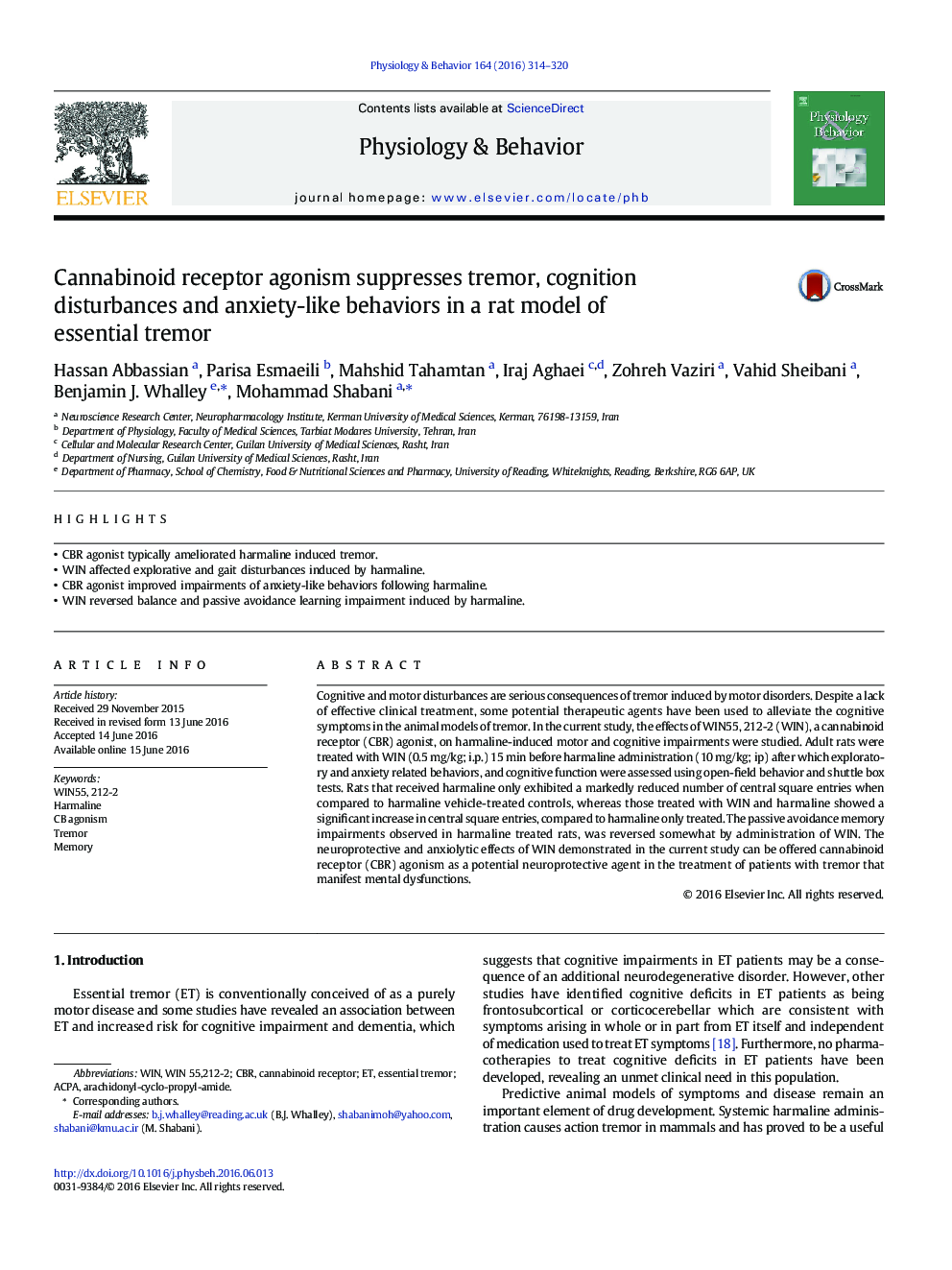| Article ID | Journal | Published Year | Pages | File Type |
|---|---|---|---|---|
| 5922640 | Physiology & Behavior | 2016 | 7 Pages |
â¢CBR agonist typically ameliorated harmaline induced tremor.â¢WIN affected explorative and gait disturbances induced by harmaline.â¢CBR agonist improved impairments of anxiety-like behaviors following harmaline.â¢WIN reversed balance and passive avoidance learning impairment induced by harmaline.
Cognitive and motor disturbances are serious consequences of tremor induced by motor disorders. Despite a lack of effective clinical treatment, some potential therapeutic agents have been used to alleviate the cognitive symptoms in the animal models of tremor. In the current study, the effects of WIN55, 212-2 (WIN), a cannabinoid receptor (CBR) agonist, on harmaline-induced motor and cognitive impairments were studied. Adult rats were treated with WIN (0.5Â mg/kg; i.p.) 15Â min before harmaline administration (10Â mg/kg; ip) after which exploratory and anxiety related behaviors, and cognitive function were assessed using open-field behavior and shuttle box tests. Rats that received harmaline only exhibited a markedly reduced number of central square entries when compared to harmaline vehicle-treated controls, whereas those treated with WIN and harmaline showed a significant increase in central square entries, compared to harmaline only treated. The passive avoidance memory impairments observed in harmaline treated rats, was reversed somewhat by administration of WIN. The neuroprotective and anxiolytic effects of WIN demonstrated in the current study can be offered cannabinoid receptor (CBR) agonism as a potential neuroprotective agent in the treatment of patients with tremor that manifest mental dysfunctions.
